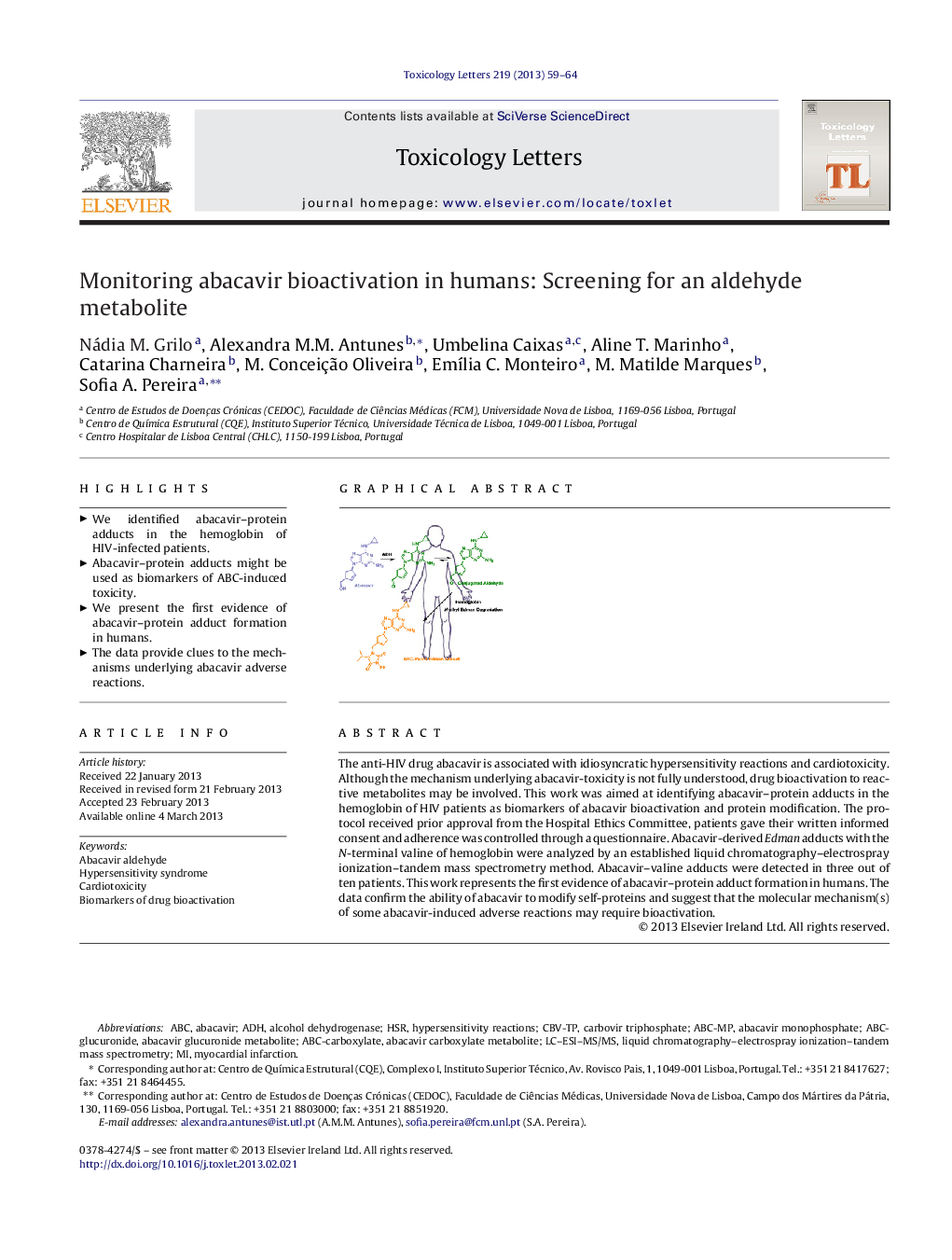| Article ID | Journal | Published Year | Pages | File Type |
|---|---|---|---|---|
| 2599434 | Toxicology Letters | 2013 | 6 Pages |
The anti-HIV drug abacavir is associated with idiosyncratic hypersensitivity reactions and cardiotoxicity. Although the mechanism underlying abacavir-toxicity is not fully understood, drug bioactivation to reactive metabolites may be involved. This work was aimed at identifying abacavir–protein adducts in the hemoglobin of HIV patients as biomarkers of abacavir bioactivation and protein modification. The protocol received prior approval from the Hospital Ethics Committee, patients gave their written informed consent and adherence was controlled through a questionnaire. Abacavir-derived Edman adducts with the N-terminal valine of hemoglobin were analyzed by an established liquid chromatography–electrospray ionization–tandem mass spectrometry method. Abacavir–valine adducts were detected in three out of ten patients. This work represents the first evidence of abacavir–protein adduct formation in humans. The data confirm the ability of abacavir to modify self-proteins and suggest that the molecular mechanism(s) of some abacavir-induced adverse reactions may require bioactivation.
Graphical abstractFigure optionsDownload full-size imageDownload as PowerPoint slideHighlights► We identified abacavir–protein adducts in the hemoglobin of HIV-infected patients. ► Abacavir–protein adducts might be used as biomarkers of ABC-induced toxicity. ► We present the first evidence of abacavir–protein adduct formation in humans. ► The data provide clues to the mechanisms underlying abacavir adverse reactions.
